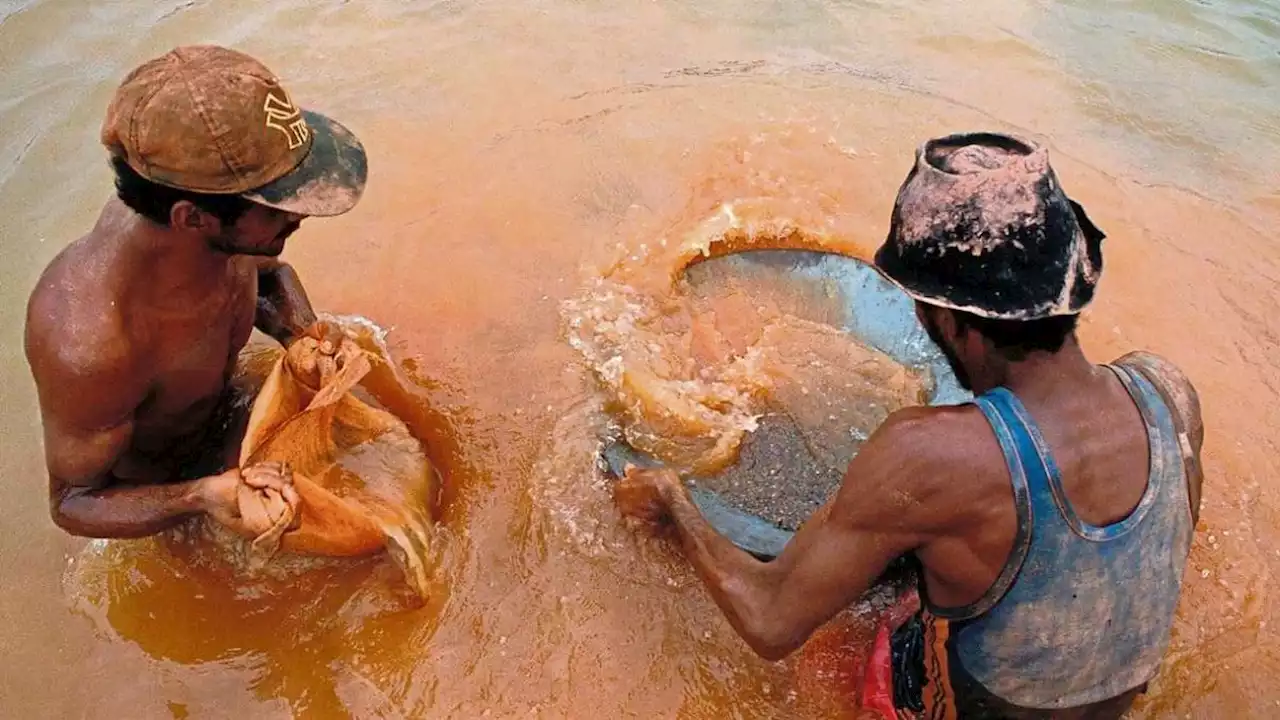RIO DE JANEIRO, BRAZIL – Brazil exported some 110 tons of gold to some 20 countries last year, the result of a new fever that threatens the largest rainforest on the planet, as the search for the precious metal has put 6.2 million hectares of indigenous and environmental reserves at risk, according to research by an NGO.
Gold prices escalated because of the coronavirus pandemic. Sales of the metal in 2020 left the country with US$4.9 billion, an amount 60% higher than in 2019 and 18 times higher than that recorded a decade ago.

The data are from the Escolhas Institute, an NGO that promotes sustainable development in Brazil and that discovered that part of the exported gold had some inconsistency, since 16.8% of the gold shipped abroad in 2020 was not reported in any production record, and 17.2% of the produced was the result of illegal mining.
The investigations revealed the lack of control over the sale of gold in Brazil and how this has contributed to the devastation of the rainforest.
According to experts, illegal mining is one of the main causes of deforestation in the Brazilian Amazon, which in 2020 lost some 8,500 square kilometers of rainforest, according to official figures.
“In the last five years, the devastation of the (Brazilian) Amazon grew five times just because of mining activity,” said Larissa Rodrigues, project manager of the NGO and research coordinator.
RESERVES OF THE AMAZON AT RISK UNDER BOLSONARO’S APPROVAL
The search for gold puts at risk about 6.2 million hectares of environmental or indigenous reserves in the Amazon – an area equivalent to two Belgiums – where research for the exploitation of the metal is underway or where there are requests to initiate studies.
Although gold mining in indigenous reserves is prohibited, 2.4 million hectares of these native lands are targeted for gold exploration. In the case of protected environmental areas, the requests for operations covers 3.8 million hectares.
According to the mining sector regulation, the research phase is the first step before mining extraction. In 2020, applications covered 85 native territories and 64 ecological reserves.
In the Yanomami territory alone, the largest indigenous reserve in Brazil, which covers part of Amazonas and Roraima, states bordering Colombia and Venezuela, requests were identified to search for gold on 749,000 hectares.
And it is that the number of requests increased considerably since 2018, with a record 31 registrations in 2020, the fact that experts attribute to the permissive policy of the current Brazilian president, Jair Bolsonaro.
Since he was in the presidential campaign in 2018, and after coming to power, on January 1, 2019, the far-right leader has encouraged mining in indigenous reserves in the Amazon.
Currently, a government initiative project to free this activity in native territories and regularize the illicit extractions, is underway in Congress.
PART OF THE EXPORTED GOLD IS ILLEGAL
Canada, Switzerland, Poland, United Kingdom, Italy, United Arab Emirates, and India were the main destinations of gold shipped by Brazil, among 19 importing countries last year.
Official data indicate that Brazil legally produced 91.9 tons of the metal, i.e., of the 110.6 tons of gold exported in 2020, some 19 tons were illegal. In addition, some 18.6 tons were not reported in the production records of some exporting regions.
According to investigations, 14 states sold some volume of illegal gold abroad, but the seven that are part of the Brazilian Amazon produced much more gold than they exported. In contrast, other country regions sold much more gold than they produced, suggesting that the metal was “laundered” before export.
“Today, it is straightforward to extract illegal gold and legalize it (launder it) so that it enters the formal market. Both the price of gold and this lack of control mean that illegality is encouraged,” said Rodrigues.

